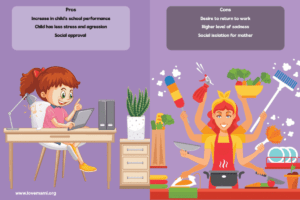Big-emotional children frequently find it difficult to control their emotions, which can result in tantrums, outbursts, and resistance. I know how difficult it can be for parents to help their children at these very emotional periods, as my three-and-a-half-year-old daughter is a highly sensitive child. Through the application of many techniques, kids can be trained to handle their emotions proficiently. I can confirm that these tips are very helpful and practical because I am a highly sensitive person.
What is Emotional Sensitivity
Children who feel emotions more strongly and profoundly than their classmates are said to be emotionally sensitive. These kids frequently struggle to settle back down after being irritated. Dysregulation is the result of the logical brain’s reduced ability to control emotions when overpowered by them.
Emotion Validation and Emotional Connectivity
It’s important to validate a child’s sentiments. Children are more likely to settle down when they feel understood. You can express acknowledgment of their feelings by using statements like “I know it pains” or “I also don’t like it”. It’s crucial to teach kids how to recognize and label their emotions. Remarks such as “You seem upset right now” or “I can tell you’re angry” assist kids with recognizing and communicating their feelings.
Having Reasonable Expectations
Setting reasonable expectations will give kids a sense of control. Parents should explain to their children the complexity of an activity and the estimated time needed to finish it before attempting it. By being prepared, kids are less likely to become frustrated and are better able to control their expectations.
Providing Coping Skills Education
The ability to cope is crucial for handling intense feelings. It is possible to teach deep breathing techniques, counting down to relax, and taking breaks. It can also be helpful to promote the usage of a calm-down kit that includes things like coloring books, Stickers, etc. Children can find strategies to lift their spirits by identifying activities that make them feel better, including playing outside or singing their favorite songs.
Setting Safe Spaces and Boundaries
Establishing boundaries and safe areas is important so kids can deal with their feelings in a supervised setting. It is important to have opportunities for relaxation after hard and stimulating activities. Providing a calm area for kids to withdraw when they’re feeling stressed out will aid in their ability to regain control.
Creating a Model of Emotional Control
By sharing their emotions and coping mechanisms, parents can serve as role models for their children in handling challenging emotions. When a parent is irate, they could say something like, “I’m at a 5 right now because I lost my ring” This exercise helps kids stop and pay attention to their feelings by teaching them how to identify and prioritize their emotions.
Making Use of Positive Attention
Positive reinforcement is a potent strategy for changing behavior. Desirable behaviors, like calming down during a tantrum, are reinforced when they are praised and given attention. Praising children clearly and enthusiastically helps them comprehend what they are doing well and motivates them to repeat positive behavior.
Coping Ahead and Fixing Problems
Coping beforehand, or planning for emotionally taxing circumstances ahead of time, helps kids get ready for future pressures. Meltdowns can be avoided by talking about coping mechanisms for unpleasant emotions in advance of their occurrence. Children can consider what could have been done differently by thinking back on prior experiences in a nonjudgmental manner, which helps them regulate their emotions for the future.
Special Time
Stress can be greatly reduced by designating specific minutes each day for a parent to participate in a child-selected activity. Regardless of the child’s behavior during the day, this special time helps them feel loved and supported.
In summary
Recognizing a child’s sensitivity, confirming their emotions, establishing reasonable expectations, and imparting coping mechanisms are all important aspects of supporting a child with intense emotions. Parents may help their children learn how to effectively manage their emotions by setting an example of emotional regulation, giving positive attention, making plans in advance, and setting aside special time each day.


















